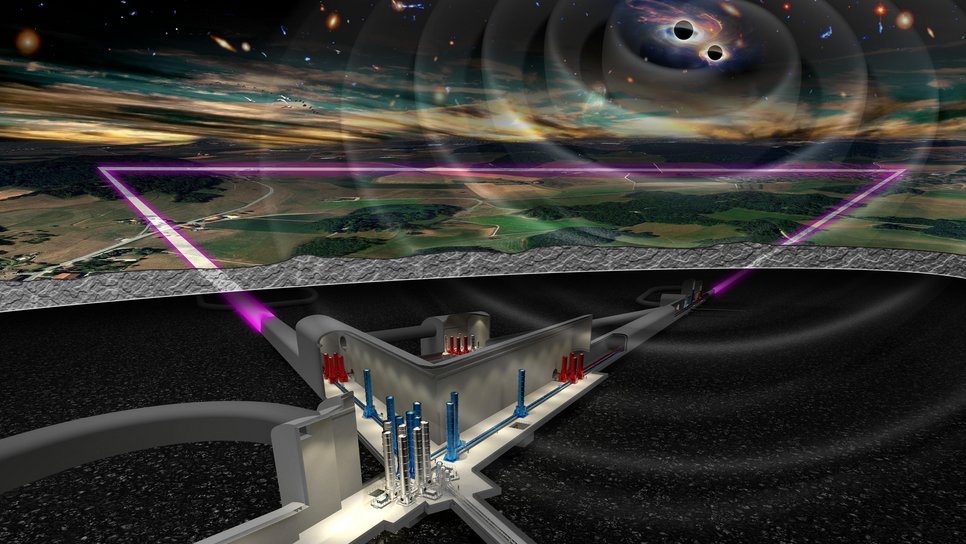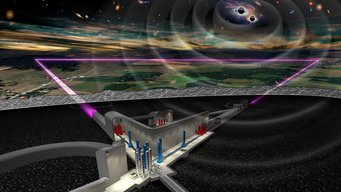The Einstein Telescope Scientific Collaboration has been established
Important step in European cooperation on the way to the Einstein Telescope
The community of European researchers who have been working on the development of the Einstein Telescope (ET) since the early 2000s has reorganized itself. During the 12th Einstein Telescope Symposium in Budapest on June 7-8, 2022, the “Einstein Telescope Scientific Collaboration” was established. The goal of this collaboration is to realize the Einstein Telescope, the European third-generation gravitational-wave detector, and thus to consolidate and expand Europe's worldwide leading role in this field of research.
“We were a scientific community, today we are a scientific collaboration, that is, a structured and organized system that works following shared rules to achieve the common goal: the realization of Einstein Telescope, a large European research infrastructure that will bring us to the center of world science and allow us to maintain scientific and technological leadership in this promising field of fundamental physics research. This is therefore a moment of great satisfaction and motivation for all of us,” says Michele Punturo of the Istituto Nazionale di Fisica Nucleare, who has led the ET community so far and is now the interim spokesperson of the collaboration.
“With the establishment of the Einstein Telescope Scientific Collaboration, we have taken a major step forward on our long road to a European third-generation gravitational-wave observatory. It puts the excellent scientific collaboration in Europe on a solid organizational foundation,” says Harald Lück, the collaboration’s deputy interim spokesperson, from the Max Planck Institute for Gravitational Physics (Albert Einstein Institute) Hannover and Leibniz University Hannover.
“The German research landscape has prepared itself well. At the moment, around 20 institutions from different disciplines are participating. They will significantly advance the development of ET with their expertise,” says Karsten Danzmann, director at the Max Planck Institute for Gravitational Physics (Albert Einstein Institute; AEI) Hannover and director of the Institute for Gravitational Physics at Leibniz University Hannover.
The European detector of the third generation

The Einstein Telescope is expected to be about 10 times as sensitive as Advanced LIGO and Advanced Virgo at their design sensitivities. It will be able to perceive gravitational-wave signals in much greater detail and detect previously invisible weaker waves for the first time. While today every few days a gravitational-wave signal is observed, ET will observe gravitational waves virtually continuously. The measurements will reveal new information about the extremely dense matter in neutron stars and about the distribution of observed events on cosmic time scales, and enable new cosmological studies.
